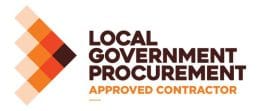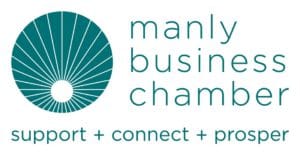Tag Archive for: #interview
So many jobs, so many companies, sooo many choices! Being a newbie in the job market can be a daunting experience. Where do you start when you’ve never had to navigate job applications, interviews and assessments before? Right here! Our recruitment experts have put together five top tips to help you find and land your first job.
Start with You
Take a look at yourself. What are your core strengths? What are your preferred work environments? What would you like to be doing in five years’ time? Before you get your job search underway, decide what type of role you would like to aim for and why. If you’re unsure, chatting to a career’s advisor or recruitment consultant can be a good idea. They can give you an idea of the different jobs that are out there, and help you zoom in on a few suitable and rewarding options.
Create a winning resume and cover letter
Brush up your resume or create one from scratch. If you don’t have heaps of work experience, don’t worry! Hiring managers will be more interested in your potential at this stage, so highlight your key strengths, showcase your achievements and shine a spotlight on your interests. Work on your cover letters too, making sure that each one is carefully targeted to the role you are applying for. It can be a good idea to keep track of your applications (dates, roles, hiring manager names and contact details, etc.) in a dedicated spreadsheet, especially if you’re using multiple platforms. At a glance, you’ll know what you’ve done and when, and who to follow up with.
Consider building a LinkedIn profile. It’s a great platform for developing your professional presence and networking with other professionals.
Get a foot in the door!
There’s so much you can do both online and offline to further your job search. Check out job listings on recruitment agency websites or search engines such as SEEK and Indeed, where you can search for specific roles by area and set up job alerts. Click on a few roles and get a feel for what employers are asking for – and then apply if you think you are a suitable candidate. With a little online research, you’ll also find resume templates, information on what to expect at interview, and heaps more useful resources.
Don’t forget face-to-face opportunities! Careers fairs and recruitment events can be great ways to find out about different jobs and organisations and connect with the people working there. Ask questions, gather brochures and business cards – and follow up! If you’ve had an interesting discussion with a company representative, there’s no harm in sending a brief email to thank them for their time and ask if there are any upcoming internships or job shadow opportunities.
If you’re at uni, tap into your alumni network. Chances are you’ll find former students working in your first-choice organisation or similar companies. While alumni may not hand you a job on a plate, many will be happy to provide you with job-related information and advice. Also look at joining an industry-related group at uni, where you can connect with like-minded peers and potentially access professionals working in the field.
Really prepare for that interview
Before the big day, make sure you’ve researched the role and the organisation in detail. Try to anticipate some of the questions you’ll be asked and prepare responses to them. Go armed with a couple of questions of your own to show you’ve done your homework. Every recruiting manager likes to see preparation and enthusiasm! Oh, and dress appropriately. Look the part and if in doubt, dress up rather than down.
Be persistent
It can take time and effort (and a lot of applications) to land your first job. Keep at it but leave a little time for living too. Persistence pays off and you’ll soon find a role you love and the chance to embark on a rewarding career journey.
Good luck!
At Optimal Recruitment we are experienced in helping candidates navigate the job market. Give us a call today on 02 8416 4181.

Optimal Recruitment
Optimal Recruitment specialises in sourcing, screening, interviewing and shortlisting candidates for temporary and permanent roles on Sydney’s Northern Beaches, Sydney, NSW and Interstate. We deliver recruitment solutions on time and on budget.
Employers
Job Seekers
Optimal Recruitment
Contact Details
307 /20 Dale Street, Brookvale NSW 2100
02 8416 4181
info@optimalrecruitment.com.au
Our offices are a 400m walk from the BLine bus stop at Warringah Mall
 Optimal Recruitment
Optimal Recruitment














